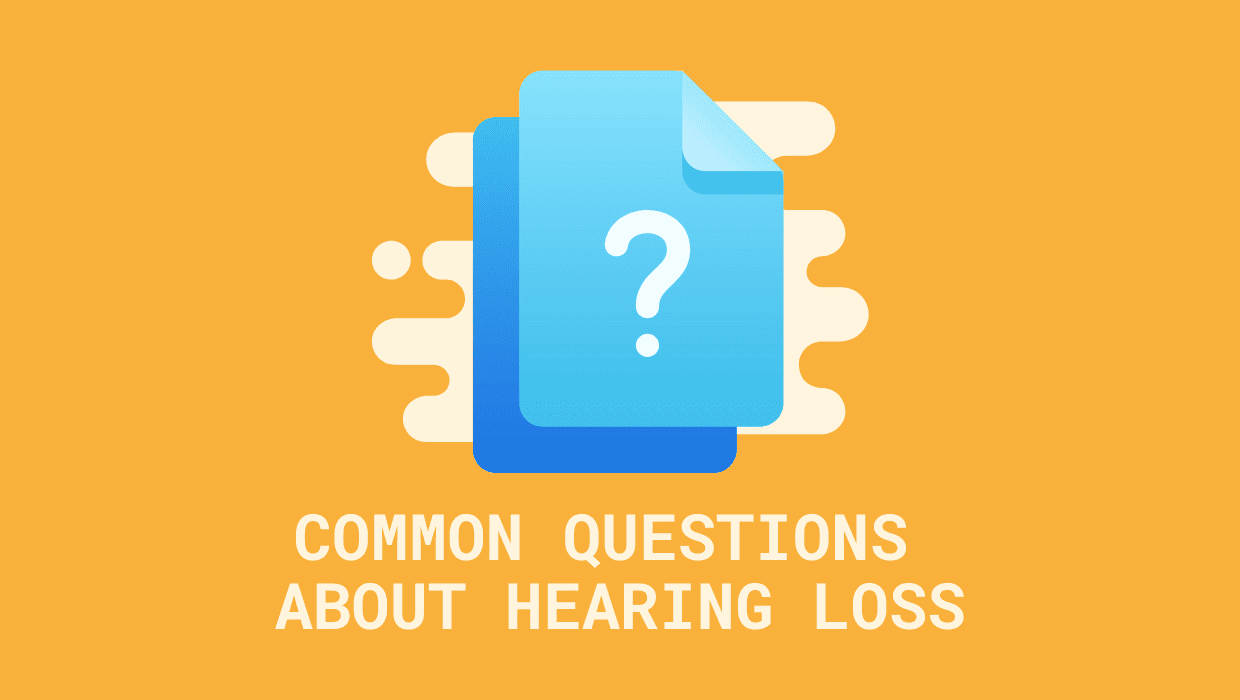
- A Guide to Different Hearing Aid Styles - May 6, 2025
- What is the Lifespan of Hearing Aid Batteries? - April 27, 2025
- Understanding the Different Types of Assistive Listening Technology - April 15, 2025
When it comes to hearing loss, there are no stupid questions. Once our hearing ability is lost to sensorineural hearing loss, it won’t come back, so don’t operate on any assumptions when it comes to protecting your ears or preventing hearing loss. Here are a few answers to questions we find many people have but are afraid to ask.
Will I Keep Losing My Hearing Until I Go Deaf?
The good news for those suffering from sensorineural hearing loss is: “probably not.” Sensorineural hearing loss is categorized as a progressive ailment, meaning it tends to get worse over time, what we see is that most cases plateau at a certain level and stay mostly steady for the remainder of the patient’s life.
The important thing is to begin treating hearing loss with hearing aids as soon as it becomes a problem in daily life. Hearing loss starves the brain’s auditory cortex of information, which leads to its atrophy and, eventually, loss of the ability to decipher speech. Treating sensorineural hearing loss with hearing aids as soon as possible means your brain can stay healthy, even as your hearing may deteriorate further as time passes. If necessary, hearing aids can be refitted to accommodate progressive hearing loss.
Can’t I Get By With Just One Hearing Aid?
If a hearing healthcare professional has recommended two hearing aids, you should get both hearing aids. Your brain uses both ears, and only treating one ear means you’ll still undergo a process called “cross-modal cortical reorganization,” whereby the brain starts to rewire itself based on where it’s getting most of its information. Effectively, using only one hearing aid will make your brain lopsided, allowing for many of the concerns about neural health related to hearing loss to go unaddressed.
Another thing to consider is that while your ears work together, they each have a different specialty. Your right ear sends information directly to Wernicke’s area (the left side of the auditory cortex) which is responsible for deciphering speech, while your left ear focuses more on environmental sounds and music.
Why Not Forget About Hearing Aids and Just Get Cochlear Implants?
Cochlear implants are a very exciting treatment that are functionally a “cure” for deafness related to problems of the ear. However, they’re reserved for the treatment of actual deafness in children who are born deaf and adults who have completely lost their hearing. For those with progressive hearing loss, hearing aids are still the best treatment.
While hearing aids amplify sound and present it to your ears at a louder level, cochlear implants bypass your ear entirely. While they restore hearing ability in those whose ears do not function, they do not restore hearing to normal. People with cochlear implants still rely on lipreading and, in many cases, also sign language.
Cochlear implants are also much more invasive than hearing aids, requiring drilling through the skull and inserting electrodes into the cochlea to access the auditory nerve. They are best left to those who absolutely cannot hear without them.
Are There Natural Remedies for Hearing Loss?
The answer is “no.” No remedy — natural, medical, or magical — can restore hearing after sensorineural hearing loss. Sensorineural hearing loss, the type implicated in both noise-induced and age-related hearing loss, involves the death of tiny, hair-like cells called cilia that sit inside the cochlea of the inner ear and transduce (convert) the mechanical energy of sound into electrical impulses to be interpreted by the brain. Once these cells are damaged, they cannot be repaired or regrown.
There are vitamin supplements that support hearing health, and there is increasing evidence that an anti-inflammatory diet, such as Dietary Approaches to Stop Hypertension (DASH) or the Alternate Mediterranean diet (AMED), can help prevent hearing loss or slow its progress. The current scientific understanding is that some damage to the cilia may be caused by restricted blood flow, or a combination of restricted blood flow and noise exposure. We might think of the cilia as the “canary in the coalmine” of our bodies: as some of the most sensitive instruments, they are the first to feel the effects of poor general health. By eating healthy and quitting smoking, we give them a much better chance of survival.
If you or someone you love is suffering from untreated hearing loss, make an appointment with us for a hearing test today and find out what can be done to improve the situation. We’re here to help!
